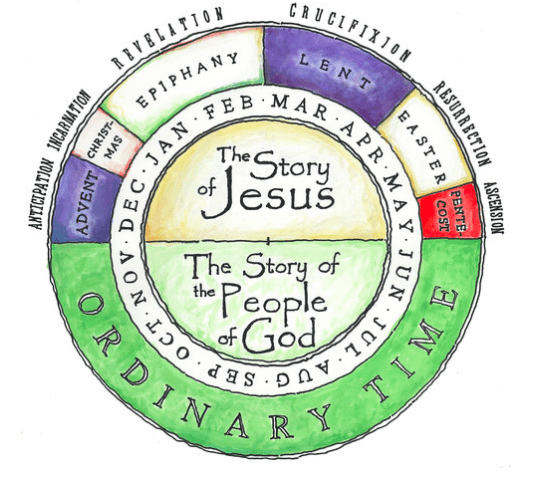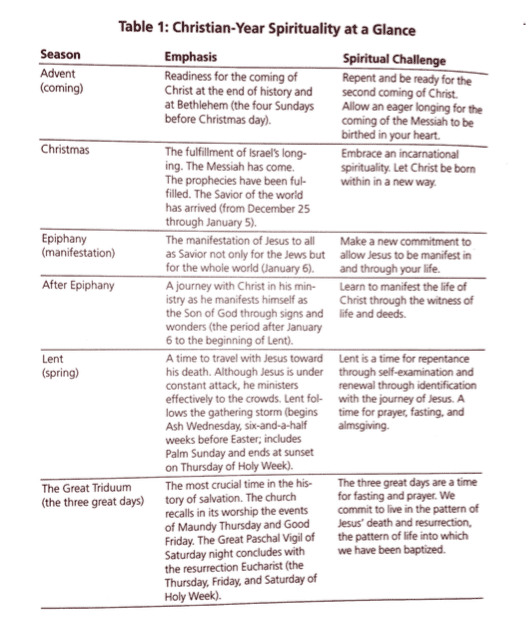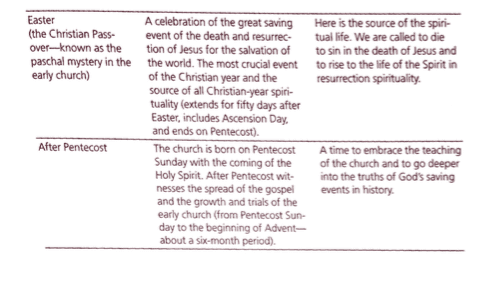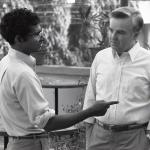 I begin a series that will seek to shed some light on why I am Anglican.
I begin a series that will seek to shed some light on why I am Anglican.
More than twice a month I am asked “Why did you become Anglican?” The answer to the question is complex, and I want to answer that question in part by saying up front that I don’t believe in ecclesiastical superiority. I don’t think any single church or denomination is the one true church. I’ve heard more than a whiff of this from folks as varied as Plymouth Brethren, Eastern Orthodox, Roman Catholic (in spades, frankly), Baptist, Evangelical Covenant, and United Methodists. So in this series I’m not saying that the Anglican Communion is the one-true-and-always-faithful church in the world.
I became Anglican because of the church calendar. (Not only because of the church calendar but it was part of the process.) Non-calendar Christians usually observe Christmas (not always Advent, though it is growing) and Good Friday and Easter. That’s about it. The rest of the year is up to the preacher, the pastor, the elders and deacons, and up to the congregation. Many pastors wisely organize their churches to be formed over time through a series of themes — or books of the Bible (Martyn Lloyd-Jones and John Piper preached through Romans for almost two decades) — but none can improve on the centrality of Christ in the church calendar.
I begin with the church calendar, beautifully displayed in the graph at the top of this post. I love the church calendar, and here are my reasons:
- God gave the children of Israel and calendar and a series of feasts that memorialized annually the story of God with Israel and the history of God’s redemptive work among Israel. Thus, read Leviticus 23.
- A calendar like this served to divide the year into its parts on the basis of God’s redemption. Agriculture is folded into this redemptive calendar.
- The calendar reminded Israel of what God had done and became the platform of hope for what God will do.
- The spirituality of attentive Israelites was formed then on the basis of the major redemptive acts of God in Israel’s history.
- Israelites knew their history and their story on the basis of this calendar
The church calendar is the Christianizing (to use a bad word) of Israel’s calendar. It reshaped that calendar around the central event of the Christian faith: the redemption in Christ.
From Robert Webber (see below).
Hence, the church calendar does what Israel’s calendar did for the Christians:
- The church’s leaders provide a calendar commemorating the redemptive events in the life of Christ and these events memorialize what God has done in Christ.
- A calendar like this serves to divide the year into its parts on the basis of God’s redemption in Christ.
- The calendar reminds the church every year what God has done in Christ and becomes the platform of hope for what God will do in Christ.
- The spirituality of attentive Christians is formed then on the basis of the major redemptive acts of God in the story of Jesus.
- Christians can learn their history and their story on the basis of this calendar
Look at that calendar and you will notice how Christo-centric it is. The church’s calendar centers itself around Jesus himself and what God has done in Jesus. There is no better way to organize our life.
The church calendar itself does nothing for us apart from grace, apart from the work of the Spirit, and apart from our willing faithfulness to be open to what God does for us in Christ. But, with that work of grace and our openness the calendar can become a means of our formation.
The church calendar, especially in Ordinary Time, is the time where the most of adaptation occurs. Pastors may simply choose to preach through a book or a theme on the basis of discerning a church’s needs. Adaptation to the moment has always been a factor in church calendars, but over time the church calendar is a wise guide to the central themes of our faith and formation.
For a very good book on the church calendar, I recommend Robert Webber, Ancient-Future Time: Forming Spirituality through the Christian Year.

















